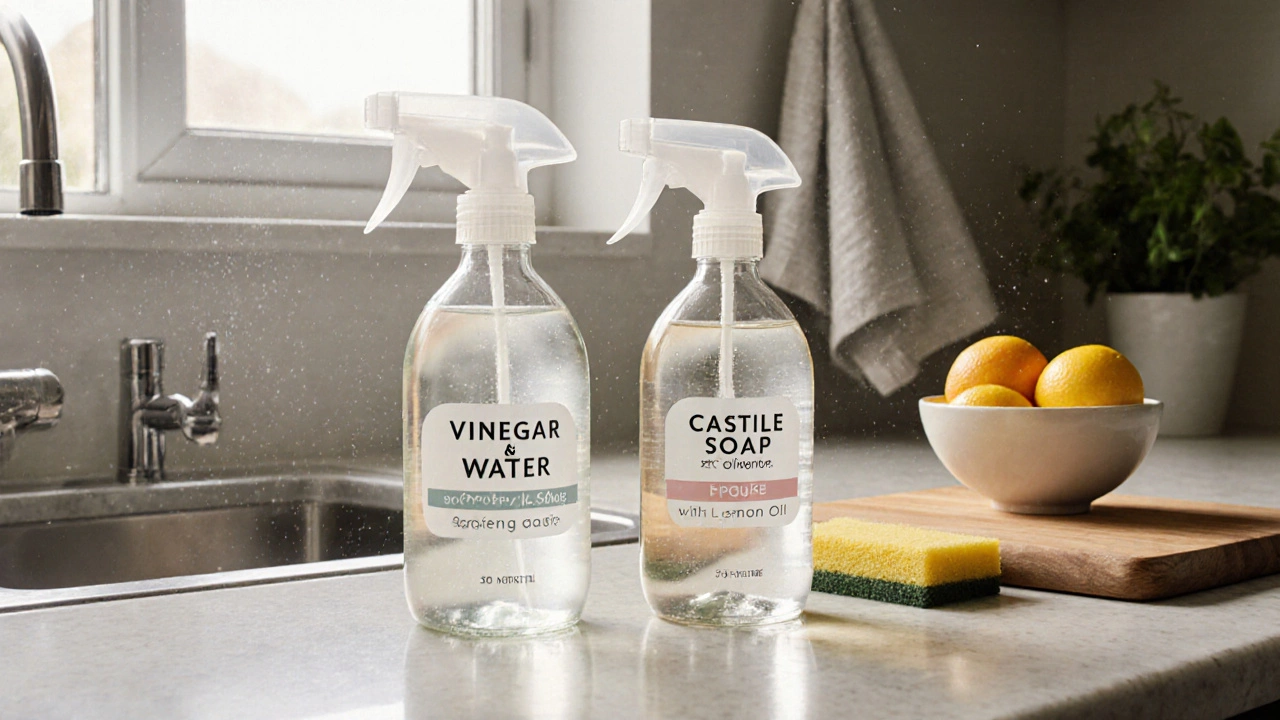Natural Cleaning Alternatives: Safe, Effective Ways to Clean Without Harsh Chemicals
When you think of natural cleaning alternatives, non-toxic, plant-based solutions used to clean homes without synthetic chemicals. Also known as eco-friendly cleaning, it's not just a trend—it’s a practical shift toward safer living spaces. You might picture vinegar and lemon, but there’s more to it than that. These methods aren’t just for hippies or Pinterest boards—they’re backed by real results, especially when you know what works and what doesn’t.
Take vinegar cleaning, using white vinegar as a degreaser, disinfectant, and deodorizer. Also known as acidic household cleaner, it’s cheap, powerful, and widely available. But here’s the catch: vinegar isn’t magic. It eats away at stone countertops, damages hardwood finishes, and doesn’t kill all germs. That’s why knowing homemade cleaners, DIY mixtures made from common kitchen ingredients like baking soda, castile soap, and essential oils. Also known as non-toxic cleaning solutions, it’s not just about mixing stuff—it’s about matching the right formula to the right surface. A baking soda paste works wonders on oven grime. A mix of vinegar and dish soap tackles grease on stovetops. But you wouldn’t use vinegar on your marble sink. That’s where most people go wrong—they treat all natural cleaners like one-size-fits-all.
And then there’s non-toxic cleaning, the broader practice of removing dirt and germs without exposing people or pets to harmful chemicals. Also known as green cleaning, it’s about protecting your family, not just your floors. Think about it: your kids crawl on the floor. Your cat licks its paws after you wipe down surfaces. Your partner has asthma. Why risk synthetic fumes when you can use something you can eat? That’s the real advantage. You’re not just cleaning—you’re creating a healthier environment, one wipe at a time.
Some of the posts below show you exactly how to make a DIY upholstery cleaner that pulls out wine stains without ruining fabric. Others warn you where vinegar will damage your surfaces—so you don’t waste time or money. There’s even a guide on how long to let Dawn and vinegar sit before scrubbing, because timing matters more than you think. You’ll find out why white vinegar isn’t always eco-friendly (yes, really), and how to clean a mattress without chemicals that leave residues. These aren’t random tips—they’re tested, real-world fixes from people who’ve been there.
What you’ll find here isn’t a list of pretty ideas. It’s a practical toolkit. Whether you’re trying to save money, cut down on plastic bottles, or protect your kids from hidden toxins, the right natural cleaning alternative is already in your pantry. You just need to know how to use it.

Do green cleaning products really work? The truth behind eco-friendly cleaners
Green cleaning products work for most household tasks-cutting grease, killing germs, and removing stains-without toxic chemicals. Learn which ones actually deliver, how to make them cheaply, and where they fall short.
Read More